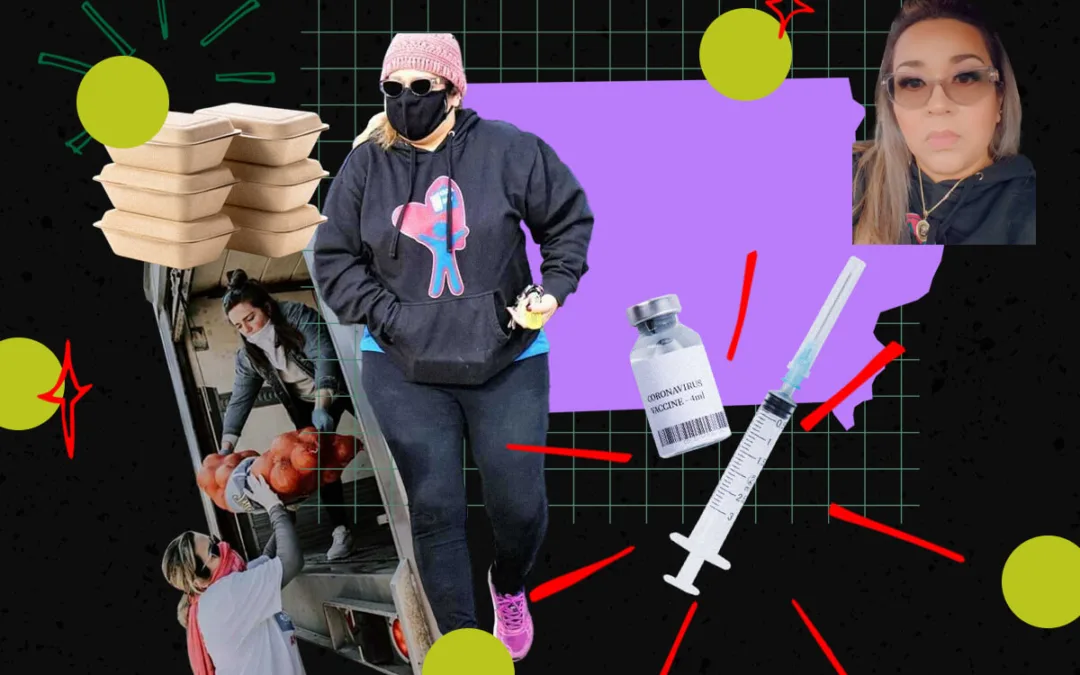
Image via Shutterstock
The lack of parental supervision brings another consequence—children are accessing apps and platforms that are not age-appropriate.
The pandemic has increased children’s access to technology and the amount of time they spend logged onto their computers.
In the face of the pandemic, children who are attending school spend six to seven hours a day in virtual classes, which goes against the efforts of many parents to limit screen time.
Even when not doing online school, many parents have allowed children to spend more hours online to keep them entertained while they deal with working from home.
But according to The American Academy of Pediatrics, children less than 18 months of age should not have access to technology other than online chatting, such as FaceTime. Children older than 2 should not have more than one hour of screen time daily, the institution says.
RELATED: Meet the Two Latino Doctors on Biden’s COVID-19 Task Force
Amarilys Rodríguez, a child and teenage psychologist in San Juan, Puerto Rico, said that the quantity of exposure to technology is one of the main problems affecting her clients these days.
“Many parents who were cautious with this issue have had to look for alternatives,” Rodríguez told The Americano. “Children who previously used technology in a more controlled way now have greater access.”
The expert said children connect to classes at 8 a.m. until 2 or 3 p.m., which can amount to seven straight hours of technology use.
After classes, many children stay on their devices because parents work from home during the afternoon. Children can end up spending about 10 to 12 hours using technology every day.
The lack of parental supervision, Rodríguez explained, brings another consequence—some children are accessing apps and platforms that are not age-appropriate.
“Little kids are using video games like Roblox and apps like Hangouts,” the psychologist said. “I have an 8-year-old patient who uses Hangouts to chat—that app is meant for adult use.”
Rodríguez said the pandemic is imposing a dangerous combination of excessive use of technology mixed with a lack of structure and socialization, all of which is “seriously harming” children and adolescents. She is seeing this situation in patients in her practice.
READ MORE: A Teacher in the White House: What Jill Biden Could Mean for Education
“In my private practice, I’ve had to refer many children to emergency psychiatric evaluations—given the increase in depression and suicidal thoughts among children,” Rodríguez said. “This is happening to children who were emotionally stable.”
Not being able to spend time outside and physically be with friends and in school has yielded cases of depression, Rodríguez said. The psychologist has been treating children with sleeping disorders, especially insomnia, she explained.
“Many children are not getting the chance to expend energy, because they sit most of the day,” Rodríguez explained. “They don’t exercise; many eat out of anxiety. Obesity is a problem.”
The psychologist has noticed the lack of motivation many children are having in school. Virtual classes, she said, can be frustrating for children, and she worries about the waning interest most of them are showing.
Rodríguez said she has a 15-year-old patient who is extremely bright, a student in a model school in Puerto Rico, who wants to withdraw from classes because she insists she is not learning anything.
“She says nothing they are giving her is useful,” the expert said. “She would like to learn about finances, cooking, how to hem her clothes—useful, practical things. She has no motivation in school.”
Dr. Rodríguez’ advice for parents is to limit access to all devices as much as possible, regardless of age. The amount of hours required to stay connected studying and doing homework is more than enough technology for a day.
RELATED: Pandemic Fallout Is Taking a Serious Toll on Latinos’ Mental Health
The psychologist recommends children become engaged with board games or puzzles while parents finish work. Parents can also give their children tasks to do around the house. During the weekend, Rodríguez recommends families engage in activities while observing COVID safety restrictions.
“Each stage of childhood has its needs and situations,” Rodríguez, who is the mother of twin boys, said. “My children are in kindergarten—the reading and writing stage—which is extremely important. Parents of young children can encourage them to play LEGO, which develops fine motor skills.”
When it comes to teenagers, doctors are more worried about them becoming addicted to technology, the expert explained. This age group socializes more via chats and calls, which require constant supervision.
Rodríguez recommended families create a calendar so that parents can schedule and track the hours each child spends using technology per day.
“This would help children visualize their technology use,” the psychologist said. “They have gone through many changes, many feel lonely. Some had to enroll in public school after being in private school because of economic factors.”
Politics

Teamsters and UPS Reach Tentative Deal to Avoid Strike, 340,000 Workers to Get Raises
The tentative deal represents a huge win for full- and part-time UPS Teamster workers, who would get significant pay raises and better working...



One Republican Senator Is Blocking 265 Military Promotions, Leaving the Marines Without a Confirmed Leader
Sen. Tommy Tuberville's decision means these military officers are not getting the pay raises they’re owed, cannot move their families to wherever...
Local News



Teamsters and UPS Reach Tentative Deal to Avoid Strike, 340,000 Workers to Get Raises
The tentative deal represents a huge win for full- and part-time UPS Teamster workers, who would get significant pay raises and better working...



One Republican Senator Is Blocking 265 Military Promotions, Leaving the Marines Without a Confirmed Leader
Sen. Tommy Tuberville's decision means these military officers are not getting the pay raises they’re owed, cannot move their families to wherever...




